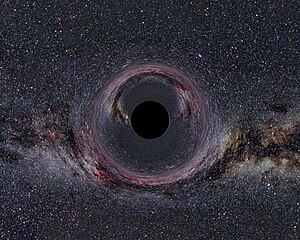User:Kushanfernando
Modern Physics[edit]
Relativity[edit]

Relativity was primarily developed by Albert Einstein.Albert Einstein (pronounced /ˈælbərt ˈaɪnstaɪn/; German: [ˈalbɐt ˈaɪ̯nʃtaɪ̯n] ( listen); 14 March 1879–18 April 1955) was a theoretical physicist who is widely regarded as one of the most influential scientists of all time. His many contributions to physics include the special and general theories of relativity, the founding of relativistic cosmology, the first post-Newtonian expansion, explaining the perihelion advance of Mercury, prediction of the deflection of light by gravity and gravitational lensing, the first fluctuation dissipation theorem which explained the Brownian movement of molecules, the photon theory and wave-particle duality, the quantum theory of atomic motion in solids, the zero-point energy concept, the semiclassical version of the Schrödinger equation, and the quantum theory of a monatomic gas which predicted Bose–Einstein condensation.Einstein is best known for his theories of special relativity and general relativity. He received the 1921 Nobel Prize in Physics “for his services to Theoretical Physics, and especially for his discovery of the law of the photoelectric effect.”[3]
Einstein published more than 300 scientific and over 150 non-scientific works.[4] He is often regarded as the father of modern physics.[5]

There are two types of relativity.These are Special theory of relativity and the General theory of relativity.
Special theory of relativity[edit]
The special theory of relativity mainly deals with the key inclusion of the new 4D dimension Time in physics.
Einstein explains this phenomenal concept by referring to a train journey. a
